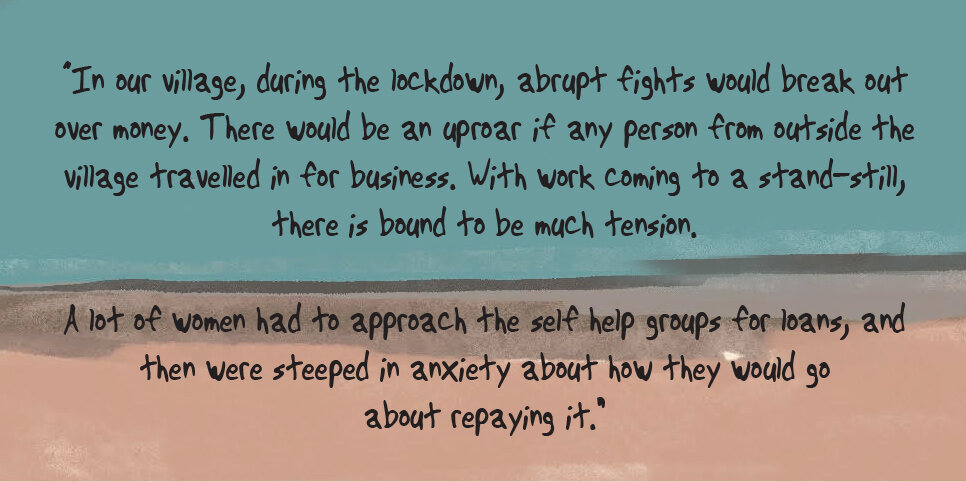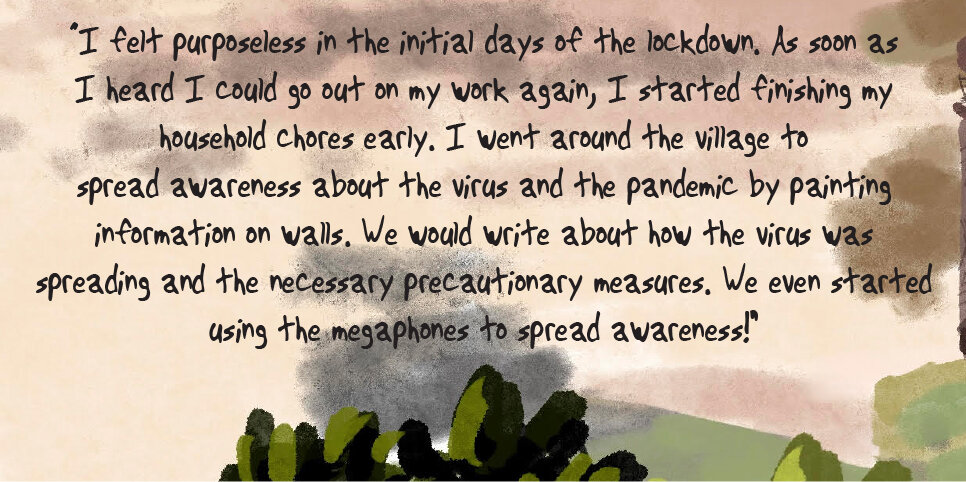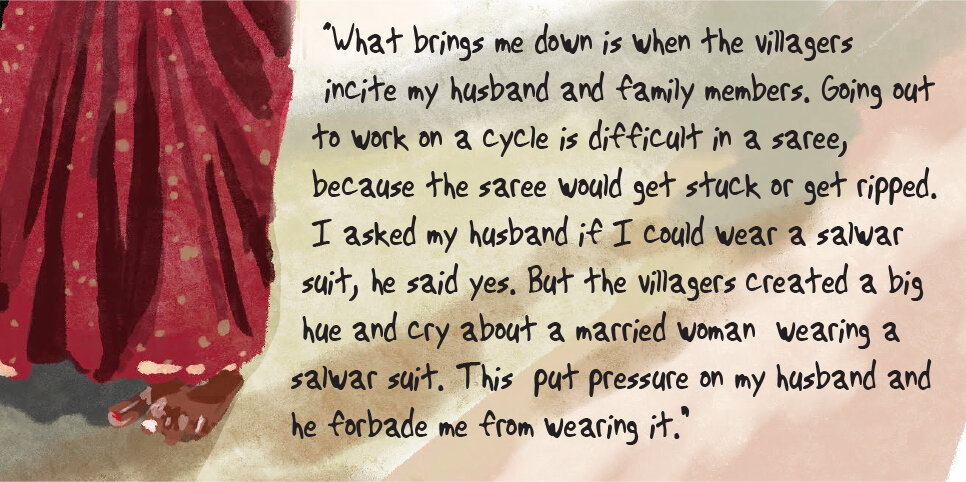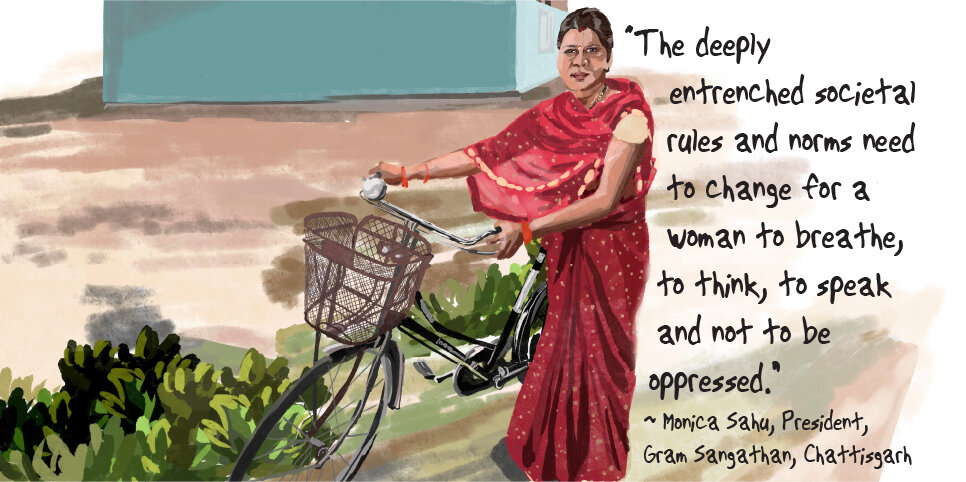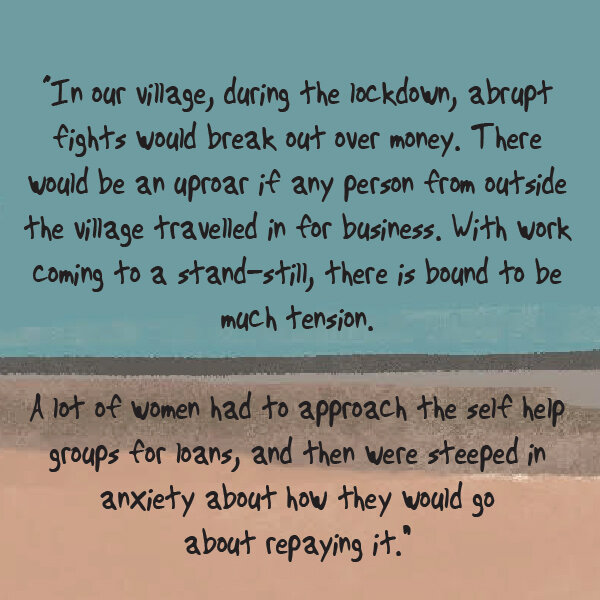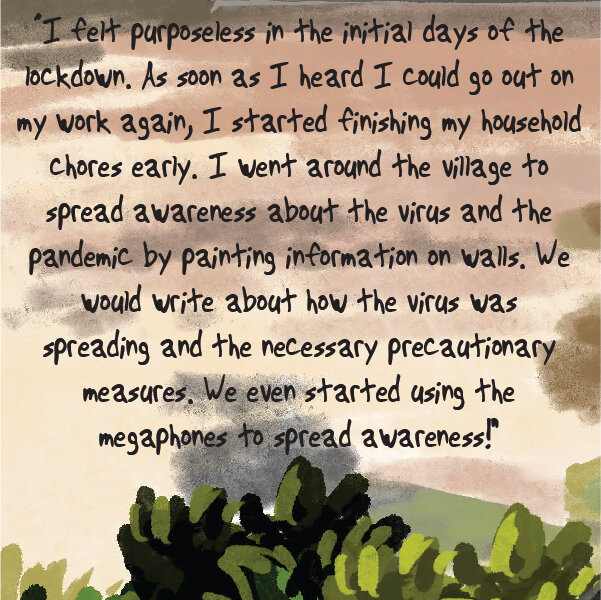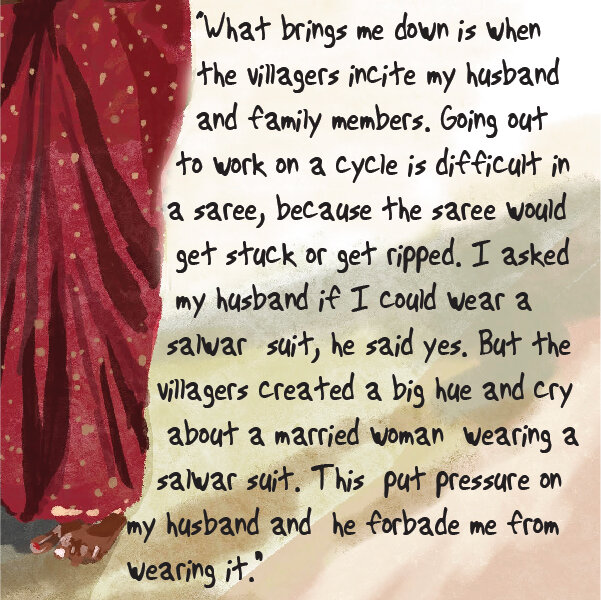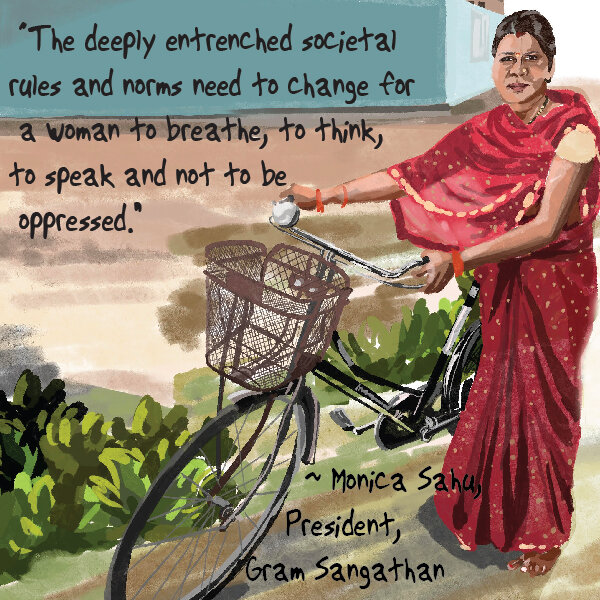Monica Sahu
“Mahilaman sochne, saas lene aur bolne ki izaajat hi naa hai.”
(Women don’t have the permission to think, to breathe, or to speak.)
Monika Sahu, devoted Cadre at Self-Help Groups (SHGs) and President of Gram Sangathan (village organisation) organised by Pradan, was once thought of as ‘a defective piece’ by her in-laws, due to her sickly constitution.
Born in Daspur and raised by her grandparents in Kondagaon, Chhattisgarh, Monika has been educated until the eighth grade, and was married off at the age of 20. Fueled by the tension at home, she became a member of SHG and started dedicating her time to on-ground work, and now looks after the agricultural needs of the village.
When discussing the challenges faced by the villagers during the lockdown, she describes the unease in the air. “Abrupt fights would break out over money. There would be an uproar if any person from outside the village travelled in for business. With work coming to a stand-still, there is bound to be much tension. A lot of women had to approach the SHGs themselves for loans, and then were steeped in anxiety about how they would go about repaying them.”
She talks about her life during the lockdown. “I felt purposeless in the initial days of the lockdown. All I did was cook and play with the children in my neighbourhood. As soon as I heard I could go out on my work again, I started finishing my household chores early. I went around the village to spread awareness about the virus and the pandemic by painting information on walls. We would write about how the virus was spreading and the necessary precautionary measures. We even started using the megaphones to spread awareness!”
When asked about the challenges she faced as a front-line worker, Monika reminisces, “A month into the lockdown, all precautionary measures were forgotten! Requesting people to be safe became so challenging. The ladies would yell at me for painting on the walls to spread awareness, and I would constantly have to request their cooperation. Jaan se zyaada diwaar pyaar hai kya? ( Do you love these walls more than your life? ) And the men! They somehow got the idea that they just could not be infected; that since the village apparently had no infections, work should go on as usual.”
Monika is focused on questioning various gender inequalities she experiences in her daily life, and works hard to ensure a uniform code of conduct is followed within the SHGs. We get a quick glimpse into her world when she shares-
“सबसे ज़्यादा दुख तब होता है जब अपन घर के इन्सान सहायता करत, लेकिन दूसरा मन जाकर भड़का देते हैं। में पहले सूट नहीं पहनत रहियो। जब समूह से जुड़कर कलस्टर में जाओं तो रोज़ साइकिल का इस्तेमाल करती हूं। साइकिल में जाऊं तो सारी फस जाए या फट जाए। तो में अपन पति को बोली कि मोला सूट लेना है। तो वह बोले की तू पहन ले, मोला कोई ऐतराज़ नहीं है। जब में पहन के जाती थी तब २-४ झने मेरे पति को बोलते थे को तोर घरवाली सूट पहनती है ! थोड़े दिनों में मोला पति पिके बोलिस की गांव वाले ऐसा बोल रहे हैं ! उसके बाद सूट पहना छोड़ दिया। दूसरा इतना मजबूर कर देते बोलेबर की अच्छा नहीं लागे।”
“What brings me down is when the villagers incite my husband and family members. Going out to work on a cycle is difficult in a saree, because the saree would get stuck or get ripped. I asked my husband if I could wear a salwar suit, he said yes. But the villagers created a big hue and cry about a married woman wearing a salwar suit. This put pressure on my husband and he forbade me from wearing it.”
“Some women in my SHGs are not even allowed to discuss their private issues in the group. Their husbands have forbidden them. So, even in a space made exclusively for them, they remain suffocated.”
However, Monika and other members derive a lot of satisfaction from their work. Not only has it given them a sense of purpose and direction, it has transformed their self-image and how they see the world around them. “I will do this work as long as I like it, as long as I am enjoying myself. I get a lot of happiness from this. The work keeps me going.”
Interviewed by Anjani Grover
Edited by Shayontoni Ghosh
Illustrated by Anushree Agarwal

